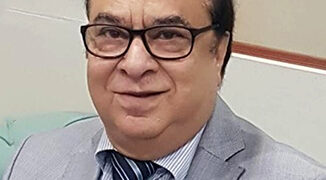KARACHI- Parwaz Male Health Society (PMHS), Karachi, commemorated World AIDS Day 2018 This public event titled “HIV Risk and Prevention: Understanding Behaviors among Vulnerable Communities” was organized to create awareness among the general public about HIV/AIDS and its disproportionate impact on the vulnerable communities. The panelists comprised of Dr. Tabinda Sarosh, Country Director, Pathfinder International Pakistan, Bindiya Rana, President, Gender Interactive Alliance, Dr. Agha Xaher Gul, Director Strategy, Marie Stopes Society, Shahzadi Rai, Executive Director, PECHRA, and it was moderated by Dr. Muhammed Moiz, the face behind social media’s famous Shumaila Bhatti.
In Pakistan, Karachi has the second highest prevalence of HIV among MSM (9.2) after Kasur (9.7) and Karachi has also the second highest prevalence of HIV among transgender populations (12.9) after Larkana (18.3). The Joint United Nations Programme on HIV/AIDS (UNAIDS) has already warned Pakistan last year that if appropriate measures are not taken, this epidemic can spread to the generalized population and Pakistan could face an Africa-like situation in the next three to five years with respect to HIV/AIDS.
The panel discussion unpacked the findings of Pakistan’s Integrated Biological and Behavioral Surveillance (IBBS) Report 2016-2017 that provides biological and behavioral information among four vulnerable populations: people who inject drugs (PWID), men who have sex with men (MSM), Transgender persons (TG) and female sex workers (FSW) for enhancing HIV and AIDs policies and programs. IBBS 2016-2017 was jointly conducted by Provincial AIDS Control Programs (PACPs), National AIDS Control Program (NACP), UNAIDS and the Global Fund.
Dr. Agha Xaher Gul said that the HIV epidemic is inextricably tied to other health problems that disproportionately affect these vulnerable communities including psychological comorbidities, minority stress, substance use, sexual victimization, stigmatization, and multiple forms of discrimination. These interrelated health problems and social issues are characterized as a syndemic (synergistic epidemic) of mutually reinforcing conditions or epidemics directed by biological, behavioral, psycho-social, and structural determinants. Shahzadi Rai highlighted the contribution of migration to the spread of HIV since Karachi, being the economic hub of Pakistan, attracts large numbers of rural and urban migrant workers including sex workers making Karachi a high-risk urban nucleus for new HIV infections.
Bindiya Rana emphasized on the importance of a healthy Pakistan, so all citizens can contribute towards building a Naya Pakistan and where all citizens have equal right and access to quality health care. Dr. Tabinda Sarosh said that based on her experience of working with female sex workers, we need to work on the attitudes of healthcare providers towards these populations as negative attitudes of health care providers impact their health seeking behavior.
Parwaz Male Health Society has been providing psychosocial counseling, clinical STI screening and treatment, voluntary counseling and testing (VCT) for HIV, and referral/registration for HIV management through its service delivery center and outreach field workers in Karachi since 2012. The organization aims to strengthen community action by providing a safe community space at its service delivery center which offers a safe and comfortable space for at-risk youth, men and people with HIV (PWHIV), where these highly-stigmatized communities receive competent healthcare services tailored to their specific needs.
















